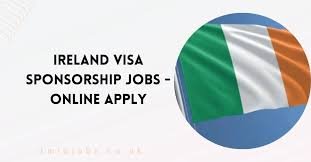Europe is a popular destination for professionals seeking new opportunities, cultural experiences, and career growth. For many, securing a visa sponsorship job is the key to making this dream a reality.
This comprehensive guide will walk you through everything you need to know about applying for visa sponsorship jobs in Europe in 2024, including an overview of the European work visa process.
Why Consider Working in Europe?
Diverse Opportunities
Europe offers a wide range of job opportunities across various sectors, such as technology, healthcare, finance, engineering, and more.
Countries like Germany, Netherlands, and Ireland are known for their thriving tech industries, while Switzerland and Luxembourg offer lucrative finance roles.
Cultural Experience
Working in Europe means immersing yourself in rich cultures and languages.
You’ll have the chance to explore historic cities, enjoy world-famous cuisines, and participate in vibrant local traditions.
Professional Growth
European companies are recognised for their innovation and high standards. Working in such environments can significantly enhance your professional skills and career trajectory.
Understanding European Work Visas
Before applying for jobs, it’s crucial to understand the work visa requirements. Each country in Europe has its own immigration policies, and visa types can vary.
Common Types of Work Visas
- EU Blue Card: Designed for highly skilled workers, this visa allows you to work in most EU countries. It requires a job offer with a salary above a certain threshold.
- National Work Visas: Each country has specific visas for non-EU workers. For instance, Germany has the Skilled Workers Immigration Act, while France offers the Talent Passport.
- Intra-Company Transfers: If you work for a multinational company, this visa allows you to transfer to their European offices.
General Requirements
- Valid passport
- job offer from a European employer
- Proof of qualifications and experience
- Health insurance
- Sufficient financial means
How to Find Visa Sponsorship Jobs
Job Portals
Several job portals specialise in visa sponsorship opportunities:
- LinkedIn: Use filters to search for jobs offering visa sponsorship.
- Glassdoor: Check company reviews and job postings.
- Indeed: Offers listings with sponsorship options.
Company Websites
Many companies list their open positions directly on their websites. Look for international firms with a strong presence in Europe.
Recruitment Agencies
Agencies can help match your skills with companies looking for international talent. They often have insights into why employers are willing to sponsor visas.
Tips for Applying
Tailor Your Application
Customise your resume and cover letter for the European job market. Highlight your skills and experiences that match the job description.
Understand Cultural Differences
Research the work culture of the country you’re applying to. Understanding cultural nuances can greatly enhance your application and interview performance.
Network
Networking can be a powerful tool. Connect with professionals in your industry through LinkedIn or attend industry conferences and webinars.
Preparing for Interviews
- Research the company: understand its mission, values, and recent developments.
- Practice Common Questions: Be ready to discuss your skills, experiences, and why you’re interested in the role.
- Highlight Your Adaptability: Emphasise your ability to adapt to new environments and work cultures.
Navigating the Visa Process
Gather the necessary documents.
Prepare all required documents in advance. This includes your job offer, proof of qualifications, and any other specific paperwork needed for the visa application.
Apply Early
Visa processing times can vary, so it’s essential to apply as early as possible to avoid delays.
Seek Professional Advice
Consider consulting with an immigration lawyer or advisor who specialises in European work visas to ensure your application is complete and accurate.
Top Countries for Visa Sponsorship Jobs in Europe
Germany
Germany is known for its robust economy and demand for skilled workers, particularly in engineering, IT, and manufacturing.
Netherlands
With a strong focus on technology and innovation, the Netherlands offers numerous opportunities, especially in tech startups and established companies.
Ireland
Ireland’s tech industry is booming, with many global companies having their European headquarters in Dublin.
Switzerland
Although not an EU member, Switzerland is part of the Schengen Area and offers excellent opportunities in finance, pharmaceuticals, and engineering.
Conclusion
Securing a visa sponsorship job in Europe can be a transformative experience, opening doors to new professional and personal opportunities.
By understanding the visa process, tailoring your applications, and leveraging available resources, you can successfully navigate this journey.
Additional Resources
Embark on your European adventure today and explore the myriad of opportunities waiting for you in 2024!



